Why Singaporean women are going to Johor to make babies
What's pushing Singaporean women to cross the Causeway to seek fertility treatment in Johor Bahru? Talking Point investigates.
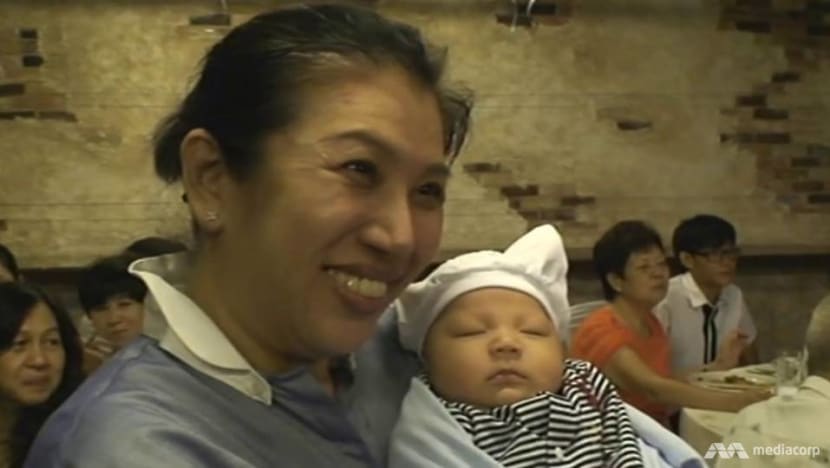
Getai celebrity Liu Ling Ling was one of those who conceived in Johor Bahru.
SINGAPORE: She used to go to Johor Bahru at least thrice a week for six months, telling herself “to be strong” and think positively “no matter what”.
Driven by desperation and hoping for success, getai celebrity Liu Ling Ling had done her research — she chose the most popular clinic in town for her treatments.
“The nurse also told me a lot of Singaporeans (make) their babies here,” she said.
That has not changed, six years after she successfully underwent in-vitro fertilization and became a first-time mother at the age of 50.
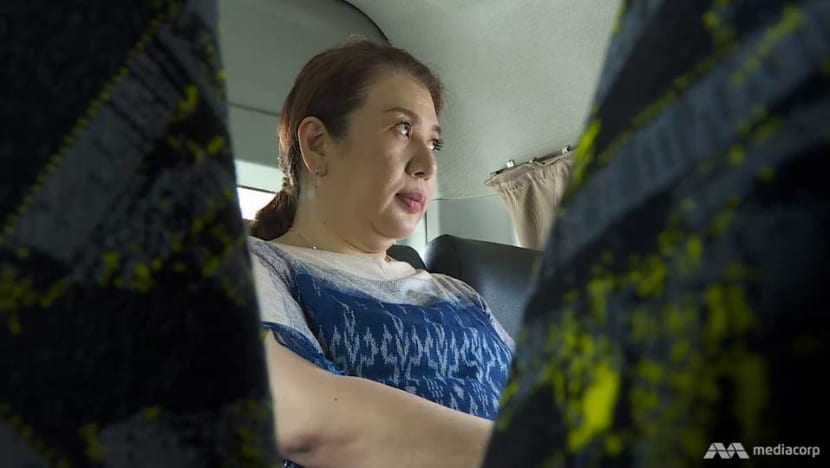
There is a concentration of fertility clinics just 10 minutes away from Woodlands Checkpoint. And a couple of them disclosed that most of their patients come from Singapore.
Age is a reason, as IVF for women aged 45 and older is not allowed here. But there are also other reasons Singaporeans are crossing the Causeway for these treatments, the programme Talking Point discovers. (Watch the episode here.)
And with fertility clinics seeming to boast high success rates, there is a question whether the reality is as good as promised, or are women pinning too much hope on IVF, overseas or locally?
READ: Commentary: A big decision, what to expect when you go for IVF
READ: The egg freezing dilemma of women in Singapore
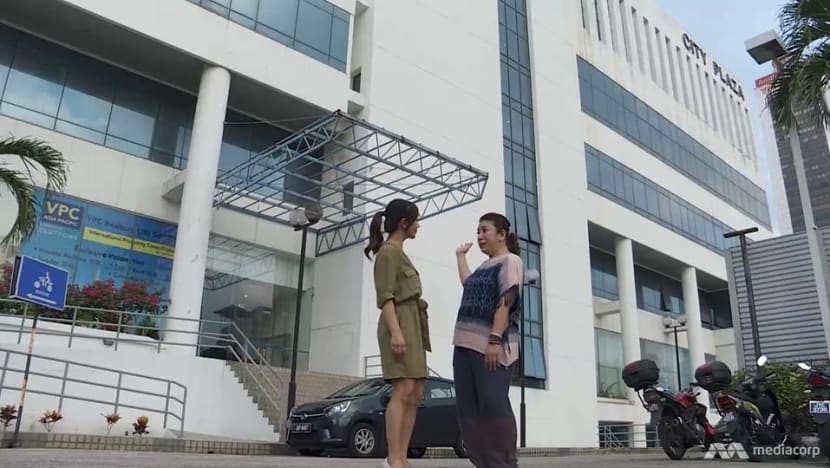
LOWER COST, GREATER CHANCES
In the case of Ms Liu, she had tried reproductive treatment in Singapore before she was 45, but it was unsuccessful.
When her doctor first told her that she would have to go to Malaysia in order to have more fertility treatments, she felt “lost”, as she did not know where to go.
“You don’t know about the doctors here; you don’t know whether it’s safe or not,” she recounted. But eventually, she found TMC Fertility Centre and Dr Fabian James Kurian.
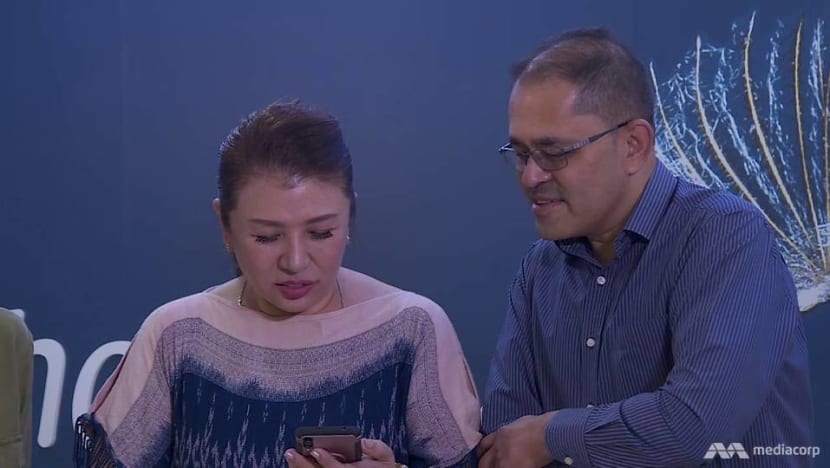
She also found out that Johor Bahru was an attractive option for Singaporeans because of the price, which is “less than 50 per cent”.
For those aged below 40, the cost of an IVF cycle at a public hospital in Singapore can be as low as S$2,500, after the government co-funds 75 per cent (up to S$7,700) of the treatment.
But for older women, it usually costs between S$10,000 and $15,000 — with no co-funding — whereas in Johor Bahru, IVF treatment may cost about S$5,000 to S$7,000 per cycle, which is more attractive to this group aged 40 and above.
LISTEN: High costs, high hopes and the deeper issues behind egg freezing, an episode on The Pulse podcast
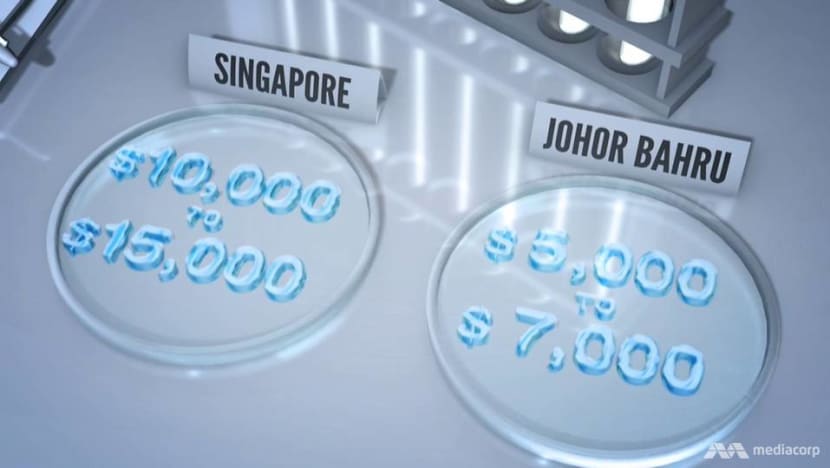
There is something else the nearby city offers: The ability to test the embryos before they are implanted in the uterus.
This technique, called pre-implantation genetic screening, aims to improve IVF outcomes for women, say, one who has “tried IVF perhaps a few times and has failed”, explained gynaecologist Ann Tan.
Embryos with chromosomal abnormalities are the most likely reason for an unsuccessful cycle and are more common among older women.
But screening for the correct number of chromosomes, so that only those embryos are implanted, can boost success rates to up to 70 per cent.
A pilot programme allowing this in Singapore is underway. But “it isn’t easily available”, said Dr Tan, who has her own clinic, the Women Fertility & Fetal Centre.
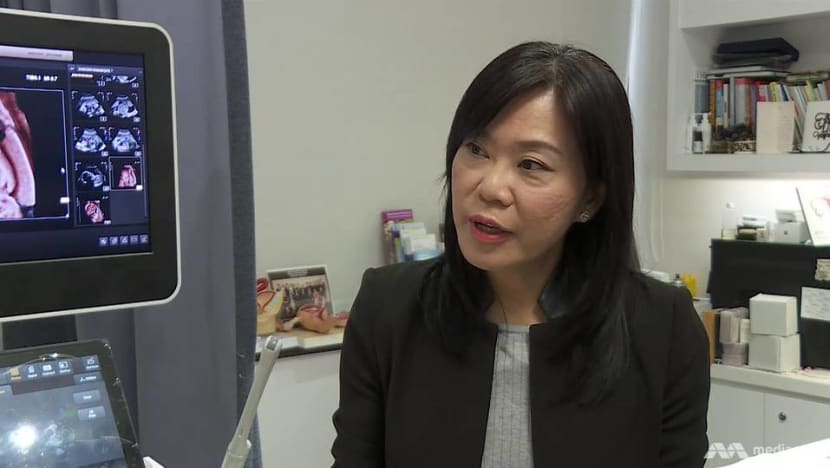
“And some can’t wait in line for it. That’s why they’re running elsewhere … to the various centres in the surrounding countries,” she added. “We’re definitely losing some patients because of this, especially the women who are older.”
REALISTIC SUCCESS RATES?
Even when there is embryo screening, the IVF process is not easy, what with the injections and the threat of miscarriage. Pictures on fertility clinics’ websites, however, make it look simple. And the success rates they report seem high.
One clinic stated that for women aged below 35, it was 69.2 per cent; for the 35 to 39 age group, it was 54.6 per cent. Another stated that for women above 40, it was 48 per cent.
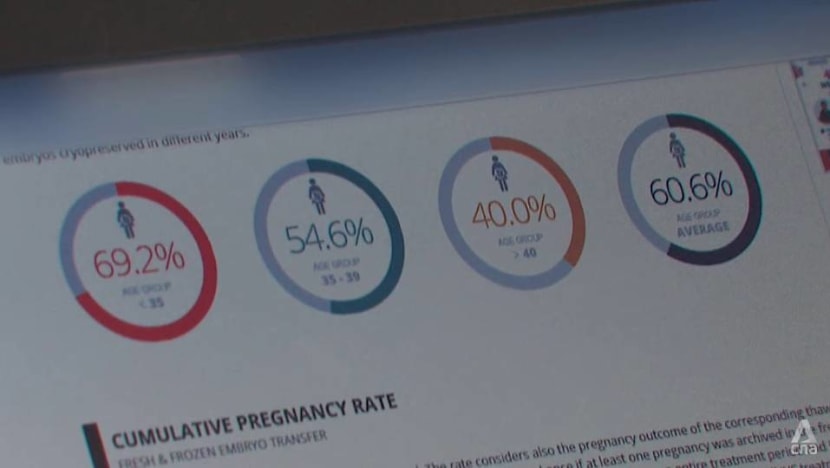
How accurate are these statistics? There are multiple ways of looking at them, according to Dr Hemashree Rajesh, a senior consultant at the Singapore General Hospital’s Department of Obstetrics and Gynaecology.
“It could be they’re talking about the clinical pregnancy rates, or it could be they’re talking about their live birth rates,” she said.
“Another thing which you’d have to interpret … is the age of the women they cater for; some of them might cater for much younger women, with pregnancy rates (that) are much better.
“So unless the public is discerning and fully looks in detail at how a clinic puts up its statistics, it's easy to be mistaken.”
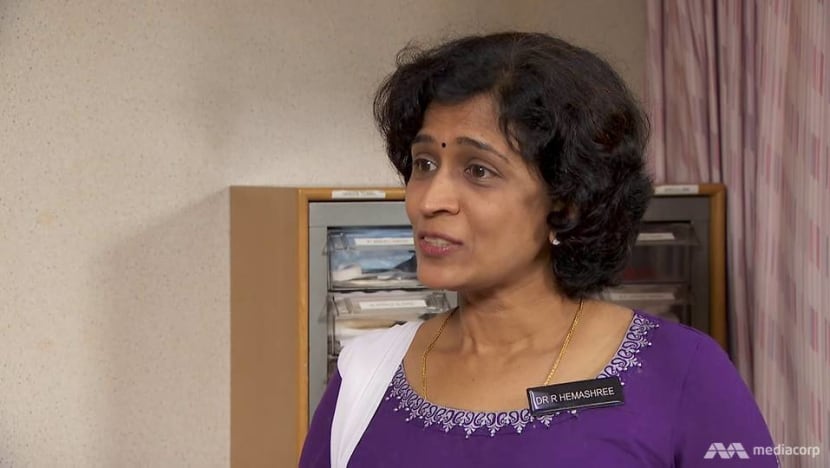
Explaining the challenge faced by women who turn to IVF, she said they “intrinsically have a higher rate of having probably abnormal babies”.
“They’re more prone to miscarriages … They’re more prone to preterm births. And if they’re older, they might have other associated complications of pregnancy, like high blood pressure, like diabetes,” she added.
While patients come with expectations of having a child, Dr Hemashree said that “if 10 patients see me, probably only three to four of them would walk home with a baby”.
And for women aged over 40, the chance of a live birth is one in 10.
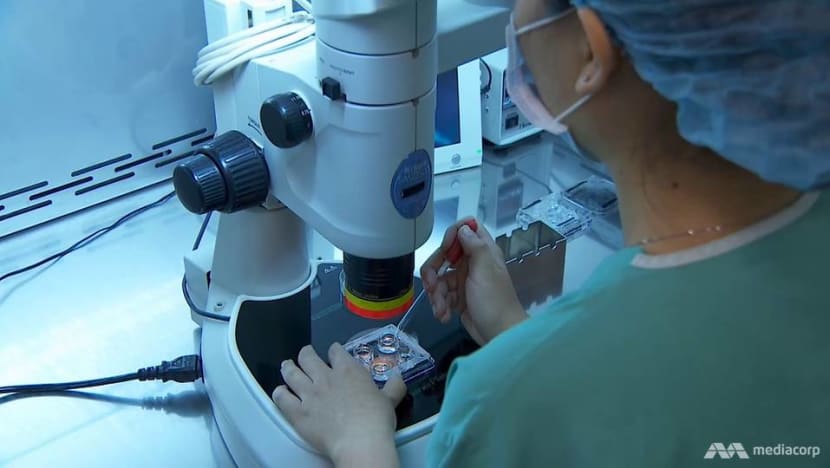
SADNESS, AND SATISFACTION
Overpromising could cause heartbreak to women longing for a child and willing to go to great lengths to conceive. Sometimes the setbacks are traumatic.
Ms Felicia Tan is one of the unlucky ones who went through three IVF cycles — which cost her more than S$60,000 over three years — without a successful childbirth, even though she got pregnant twice.
READ: Commentary: Finding the words to the silent grief of a pregnancy loss
READ: Did I create life or destroy them?: Mother’s grief over losing 3 babies
“I was 23 weeks pregnant when my water bag suddenly broke … The baby boy had already protruded out, preventing the water bag from healing naturally,” the 41-year-old said of the first miscarriage.
“Two weeks later, the baby’s position descended … and we were forced to deliver him. So he was born alive, but his heartbeat quickly dropped and therefore we lost him within minutes.”
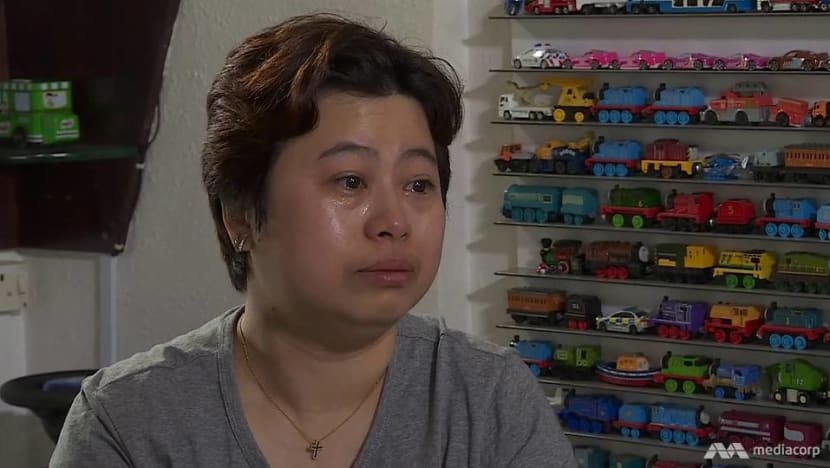
Her voice trembling, she added: “Every night, I'd be crying, asking what was wrong … scanning through portals (and) motherhood forums, trying to find answers.”
In the third cycle, she conceived twins. The delivery, at 21 weeks, “came so quick” that she gave birth in a four-room ward.
“I didn’t even have to push hard and the first twin came. We were hoping to hold the second twin, but he came right through shortly after,” Ms Tan said in tears as she described the “hurt, and more guilt”.
“As parents, we were very helpless to see the child gasping for air, but no one could do anything.”
Her story had a happy ending: She conceived naturally in 2014 and gave birth to Titus. “I told my husband, ‘Congratulations. So now you’re officially a father,’” she recalled. “Finally, it was the baby crying, not us.”
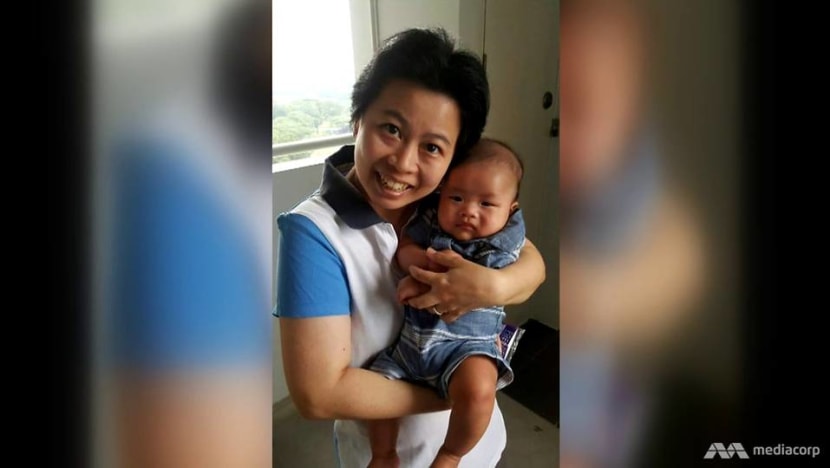
Ms Liu had a miscarriage too — in a traffic jam on the way to see her doctor in Johor Bahru.
The subsequent birth of her son, Xiang Xiang, hit the headlines. And “a lot” of her friends told her, “You’re my idol; we shouldn’t give up”, she recounted. But not all that people had to say was positive.
“You’re so old. You still want to have a baby? When (your) son grows up, (he) needs your love (and) you’re already not there,” she cited.
Asked by Talking Point host Diana Ser if becoming a parent at that age was selfish, Ms Liu replied: “Half. Because I think I want him to accompany me.”
WATCH: Singaporeans turn to Johor’s IVF clinics for babies (3:53)
Certainly, motherhood has been more challenging than she initially thought. She remembers that when he once climbed onto his walker, which she knew was going to flip over, she could not stop it because of a leg problem.
“He cried. Then slowly, I (went to) carry him and (pacify) him,” narrated Ms Liu, who also gets mistaken as being her son’s grandmother.
But ultimately, it has been “very worth it”, she stressed. “One day, my son (came to) me, kissed me, hugged me (and) told me, ‘Mama, you’re the best mother in the world.’
“That kind of love, when you kiss (your child), is totally different from when (your) husband kisses you.”
Watch this episode of Talking Point here. New episodes on Channel 5 every Thursday at 9.30pm.

















